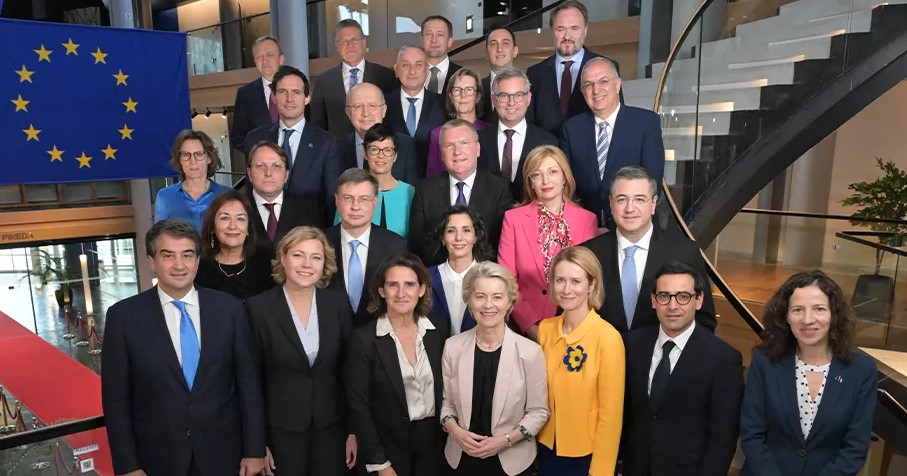On 1 December 2024, the freshly inaugurated European Commission commenced its term. A detailed catalogue of Commissioners and their respective roles can be found on the European Commission’s official website. The Commission is made up of 27 Commissioners, one for each country, who will work for the next five years.
Ekaterina Zaharieva has taken on the role of Commissioner for Start-ups, Research, and Innovation. Her key responsibilities include:
- Expanding the European Innovation Council and the European Research Council.
- Proposing legislation for a European Research Area Act to ensure the free exchange of researchers, scientific knowledge, and technologies.
- Crafting a long-term vision to strengthen European Research Infrastructure and proposing a European Innovation Act to simplify EU regulations and improve access to venture capital.
- Enhancing support for EU start-ups and scale-ups and establishing a Trusted Investors Network to connect deep-tech investors across Europe.
- Developing a European Life Sciences Strategy to unlock high-value technologies.
- Introducing an Advanced Materials Act to facilitate the journey from research to manufacturing and deployment.
- Promoting the adoption of artificial intelligence by European researchers and contributing to the creation of a European AI Research Council.
- Overseeing and implementing EU research and innovation funding programmes, including Horizon Europe and the EU Missions.
In a recent article, Science Business has outlined the principal ideas, initiatives, and strategic priorities shaping research and innovation, alongside plans for the upcoming Framework Programme 10 (FP10). This summary reflects President Von der Leyen’s commitment to embedding science at the centre of the EU’s economic strategy. Science Business writes that Ekaterina Zaharieva sought to reassure stakeholders that research funding will not be absorbed into a larger competitiveness fund. Addressing MEPs, she emphasised that shaping the next Framework Programme (FP10) would be a “top priority” during her tenure. In written responses to the European Parliament ahead of her 5 November hearing, Zaharieva outlined her vision for a “new and strengthened Framework Programme 10,” inspired by the Draghi report on EU competitiveness and insights from the Commission’s independent FP10 advisory group. During her hearing, Zaharieva pledged to overhaul the EU Framework Programme, aiming to make it significantly simpler and more appealing for start-ups and SMEs. She highlighted the need to reduce the time it takes from application to grant approval, currently averaging 12 months. Zaharieva expressed strong support for the Heitor group’s suggestion to implement a “trust first, evaluate later” model, as well as adopting lump-sum funding to streamline the process. Starting in 2025, she plans to introduce a two-stage application system: the first stage focusing on the core project idea, with additional documentation required only for projects advancing to the second phase. Another key proposal is the use of double-blind evaluations to minimize bias in the selection process. This approach, already tested in a pilot scheme, could soon be expanded based on the Commission’s assessment of its effectiveness. For more insights into Zaharieva’s hearing and plans, read Science Business’ full analysis here.

